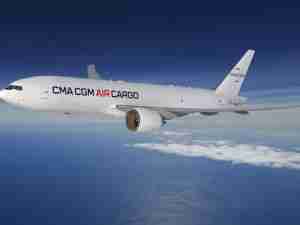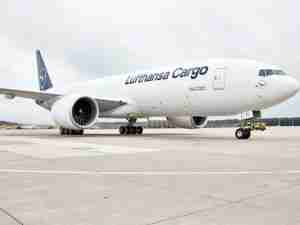Gol Posts Second Straight Profit on Stronger Brazilian Currency
By: | Aug 16 2016 at 10:13 AM | Air Cargo
Gol Linhas Aereas Inteligentes SA posted a second consecutive quarterly profit after a stronger real and lower fuel costs compensated for a drop in revenue amid Brazil’s weak demand for air travel.
The airline posted net income of 309.5 million reais ($97.5 million), helped by an accounting gain of 778.8 million reais from the Brazilian currency’s strengthening against the dollar, according to a regulatory filing. Revenue dropped 2 percent from a year earlier to 2.1 billion reais, compared with the average estimate of 2.06 billion reais compiled by Bloomberg.
Gol shares rose 4 percent to 6.51 reais at 10:54 a.m. in Sao Paulo, after climbing to 6.69 reais, its highest intraday value in a month. The stock had more than doubled this year through Monday.
Gol’s turnaround is “successfully progressing, but still not fully priced into the stock,” Bradesco BBI analyst Victor Mizusaki wrote in a report to clients.
The Brazilian real is the best performer among major currencies this year, with a 24 percent gain against the dollar. That offset a 1.6 percentage-point drop in Gol’s load factor in the second quarter. Brazilian domestic air travel fell 6.3 percent in June, the 11th consecutive monthly drop, as business and tourist demand declined amid the country’s two-year recession.
122 Target
The company postponed payments of 225 million reais related to its local bonds to 2019, and negotiated aircraft leases to reduce its fleet to 137 Boeings 737 in July. Gol is on track to end this year with 122 airplanes, according to the filing.
The airline expects the U.S. dollar to remain between 3.50 reais and 3.90 reais, and aims to reach an operational margin for earnings before interest and taxes of 4 percent to 6 percent this year, according to a separate statement. The company would reach a break-even point if those forecasts are correct, Chief Executive Officer Paulo Kakinoff said on a conference call with journalists.
“The company would mathematically generate enough operational value to pay for our amortizations and financial obligations in the year of 2016,” Kakinoff said.
Gol replaced its chief financial officer last month. Richard Lark took over as CFO after his predecessor failed to persuade enough investors to accept an exchange offer for $780 million in dollar-denominated debt.
Gol is still focused on reducing debt, Kakinoff said.
“The company’s level of dollar-denominated debt is an exposure that still deserves our full attention,” he said.











